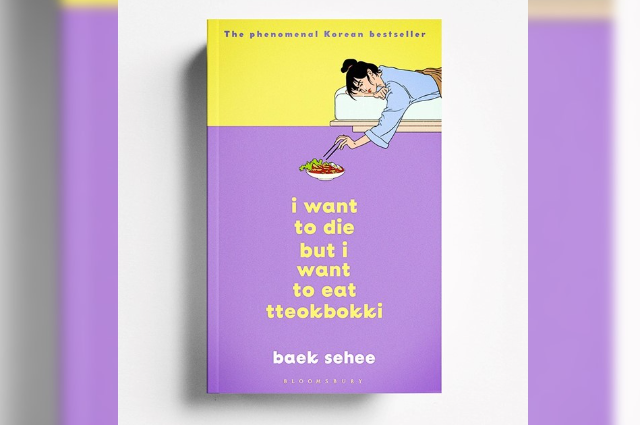“Even the darkest night will end, and the sun will rise.”
– Les Misérables
Baek Sehee’s I Want to Die, But I Want to Eat Tteokbokki takes readers on a journey of self-reflection, therapy, and acceptance, shedding light on the struggle with mental health issues many face yet often keep hidden. Sehee’s work stands out because it is so candid — through sharing her therapy sessions, she reveals the challenges and healing that come with confronting oneself honestly.
The book unfolds through Sehee’s therapy sessions, where she discusses her experiences with depression, anxiety, and a persistent sense of emptiness. Sehee expresses what many feel but hesitate to voice, such as the feeling of being “not enough” or the exhaustion of trying to meet societal expectations. Her therapist listens and challenges her to question the negative beliefs she holds about herself.
The beauty of Sehee’s work lies in its accessibility. Rather than offering clichéd advice, she provides an honest account of struggling with mental health while balancing ordinary desires and daily routines — like the simple joy of eating tteokbokki, a popular Korean comfort food. Through these confessions, Sehee normalizes therapy, self-doubt, and the ongoing process of mental health recovery. This book resonates deeply with readers who may feel that they are “not quite right” or that they aren’t living up to an invisible standard. Sehee’s openness reassures us that we are not alone in these battles.
My Personal Journey with Mental Health and Therapy
Reading this book felt like looking into a mirror. When I first sought therapy, I was hesitant and, truthfully, skeptical. I questioned the value of talking through my feelings when I couldn’t even understand them myself. But through therapy, much like Sehee, I learned to embrace my feelings without judgment and to acknowledge that my sadness and anxieties were valid. This realization changed how I approached my own mental health. Accepting that it was okay to feel “not okay” was incredibly freeing.
Sehee’s book reminded me that mental health journeys are rarely linear, that progress sometimes looks like small steps forward, and that healing is not a destination but an ongoing process.
5 Key Takeaways from “I Want to Die, But I Want to Eat Tteokbokki”
- It’s Okay to Seek Help
Sehee emphasizes that seeking therapy is not a sign of weakness but an act of strength. Therapy offers a space where we can be completely honest about our feelings and learn to manage them more healthily. - Self-Acceptance Over Perfection
A recurring message in the book is to embrace who we are, rather than constantly trying to fit into a mould of “perfection.” Perfection is not realistic, and accepting ourselves — flaws and all — can be incredibly liberating. - Small Comforts Are Valid
Sometimes, comfort can come from the simplest things, like enjoying a favourite food. Sehee reminds us that moments of joy, no matter how small, are worth cherishing and can act as small beacons of light during dark times. - Life Doesn’t Have to Make Sense All the Time
Sehee’s journey reveals that it’s okay if life doesn’t always “add up.” We don’t need to have all the answers, and it’s okay to feel uncertain. Embracing this uncertainty can lead to a kinder, gentler approach to ourselves. - Be Kind to Yourself
One of the most powerful messages from Sehee’s book is to extend the same compassion to ourselves that we would to a friend. Self-kindness can soften the impact of harsh inner criticism and help us navigate our struggles with more resilience.
In a world that often pressures us to present ourselves as always happy and successful, Sehee’s book reminds us that there’s strength in vulnerability. Her story sheds light on the importance of prioritizing our mental health, accepting our imperfections, and learning to take life one step at a time. If you’ve ever felt overwhelmed, lost, or like you’re the only one struggling, I Want to Die, But I Want to Eat Tteokbokki offers a comforting reminder that you’re not alone, and that there’s always room for hope and healing.

